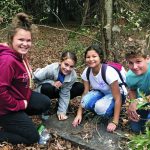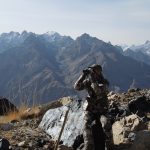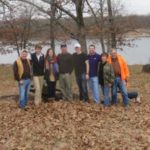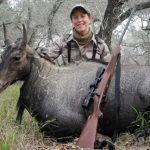Many of today’s wildlife management professionals don’t understand hunting, but efforts are underway to change that.
I remember a wildlife biology class I took in college. The class was full of people who were interested in animals, but who didn’t seem to have ever spent much time outdoors. When I showed up for a field trip to a local forest one misty day wearing camo rain gear, I attracted some strange looks from my peers. My professor, however, caught on right away, asking me if I was a hunter. When I said yes, he had me point out buck rubs and deer trails to the other students, most of whom simply stared in amazement. My professor wasn’t a hunter himself, but he recognized that my background had already given me a general understanding of some of the concepts he was trying to get across.
There was a time when most biologists, foresters, land managers, and other resource professionals came from the ranks of hunters. Many of them grew up hunting, and their experiences helped develop their interest in their chosen field. But that doesn’t happen as much any more. Many intelligent and otherwise highly qualified people who know nothing about hunting are entering these fields and getting high-level jobs at state wildlife agencies, where they make decisions about many of the issues that affect wildlife and hunting.
A 2004 survey of university wildlife departments by the Wildlife Management Institute showed that fewer than half of all students graduating with wildlife and natural resource degrees have ever hunted, and most don’t even know a hunter or understand why people hunt. Of equal concern, many of the instructors in high-level natural resource programs at universities appear to have little or no knowledge of, or interest in, hunting. This translates into a large number of current and future leaders and decision-makers of state and federal agencies who don’t understand how hunting and conservation are intertwined.
Ten years ago, a group of resource professionals realized the problems this might cause in the future. The Wildlife Management Institute, with the support of the Max McGraw Wildlife Foundation, started holding a series of workshops for students in wildlife management programs who had no exposure to hunting. The effort grew into Conservation Leaders for Tomorrow (CLfT), a professional development program designed for both students and professionals who are already working in the wildlife management field.
To date, CLfT has conducted eighty-two workshops, providing crucial conservation education to more than 1,200 participants. The four-day workshops that CLfT provides are free, requiring only a few days of the student’s or professional’s time, but they are having a dramatic impact. They don’t aim to turn a nonhunter into a hunter–the goal is simply to provide the participants with insights as to why hunting is important from a biological, social, cultural, economic, and recreational standpoint, and how it relates to conservation. The classes include both classroom and field time, and students get some exposure to safe firearms handling, shooting, and hunting techniques.
Exit surveys from the program show that 95 percent of CLfT participants now “get” why hunting is so important to conservation, and understand its cultural and economic roles in society as well. A few of them have even become hunters themselves.
This is one of those efforts that, while it reaches a relatively small number of people, stands to make a disproportionate difference to the future of hunting in America. To learn more, visit www.clft.org.












